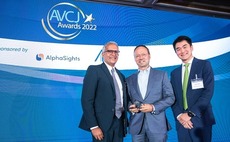
Deal focus: J-Star sees low-voltage potential
Japan-based energy savings solutions provider ESCO is expected to benefit from increased consumer awareness of efficiency issues and a shake-up in the broader utilities space
The deregulation of Japan's retail electricity market, thought to be worth JPY7.5 trillion ($62 billion), has been penciled in for April 2016. Households will be able to choose their preferred supplier based on price and service quality, which is likely to lead to increased competition.
Rakuten, which operates the country's largest online marketplace, has already announced plans to enter the space through an alliance with Marubeni Corporation. The plan is to offer a home energy management system that leverages Rakuten's user base and Marubeni's existing skills in the power sector.
The two companies will focus on low-voltage users, which includes the internet company's tens of thousands of small business customers. Household-targeted services may follow.
This development is of great interest to J-Star, which recently acquired ESCO, an energy savings solutions provider. The company works with small-scale property managers, installing LED lights and electric breakers, as well as providing related installation and inspection services. While most of its industry peers target large developments and high voltage power, ESCO aims smaller and - in voltage terms - lower.
"Based on our research, we believe ESCO is the only company in Japan focusing on smaller buildings," says Kenta Shima, a manager on J-Star's investment team. "The buildings are small and so individual sale sizes are small as well, which means it is difficult to operate in this area unless you very high efficiency."
ESCO's strong hit rate among the condominium associations that comprise the bulk of its client base is thanks to deep ties within the apartment management companies. The company wins a lot of business through referrals and it pays finder's fees to management companies that make introductions to prospective condominium association customers. It generates annual sales of approximately JPY4 billion ($32 million), while EBITDA is below JPY4 million.
J-Star was introduced to the company through a bank and spend six months conducting due diligence. It was a succession-planning deal, although the former CEO remains involved, having wanted to professionalize management to support further growth and realize his capital gain from the business.
Household electricity bills in Japan are high by international standards. The issue became more of a concern following the earthquake of 2011, which prompted a nuclear shutdown and pushed prices even higher. J-Star expects people to place greater emphasis on energy-saving, while the regulatory changes are likely to shake-up the industry.
There are also plans to expand what is already a nationwide platform through M&A. "We believe ESCO can become a core player in this market," Shima added. "Most of the local providers of LED lighting and electronic breakers are very small with only 5-10 employees."
Latest News
Asian GPs slow implementation of ESG policies - survey
Asia-based private equity firms are assigning more dedicated resources to environment, social, and governance (ESG) programmes, but policy changes have slowed in the past 12 months, in part due to concerns raised internally and by LPs, according to a...
Singapore fintech start-up LXA gets $10m seed round
New Enterprise Associates (NEA) has led a USD 10m seed round for Singapore’s LXA, a financial technology start-up launched by a former Asia senior executive at The Blackstone Group.
India's InCred announces $60m round, claims unicorn status
Indian non-bank lender InCred Financial Services said it has received INR 5bn (USD 60m) at a valuation of at least USD 1bn from unnamed investors including “a global private equity fund.”
Insight leads $50m round for Australia's Roller
Insight Partners has led a USD 50m round for Australia’s Roller, a venue management software provider specializing in family fun parks.








